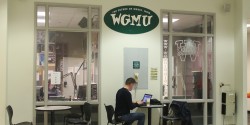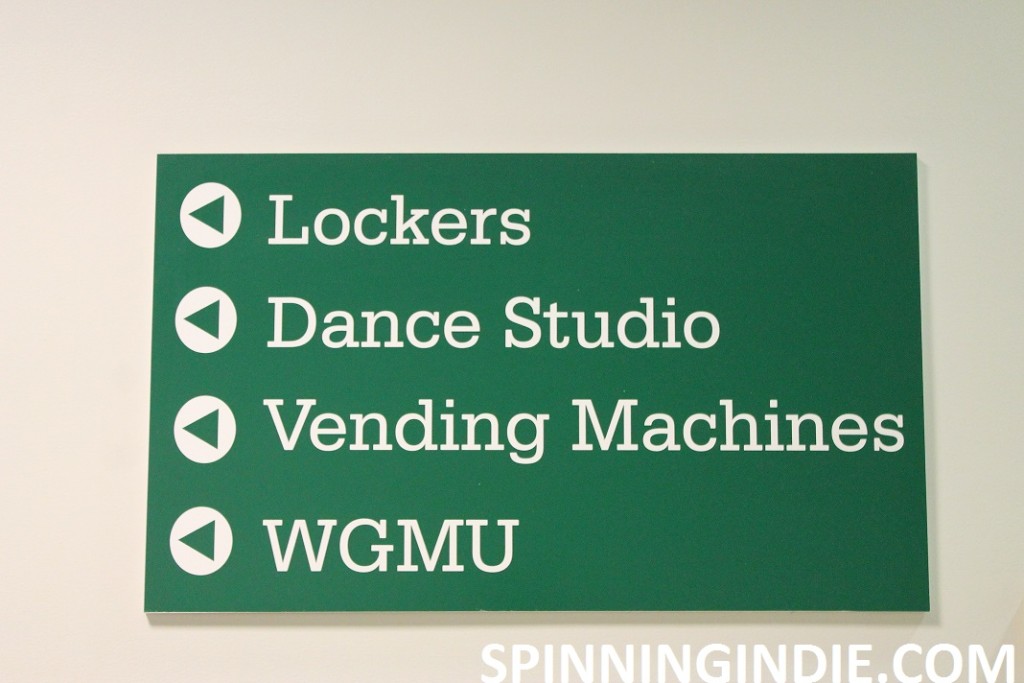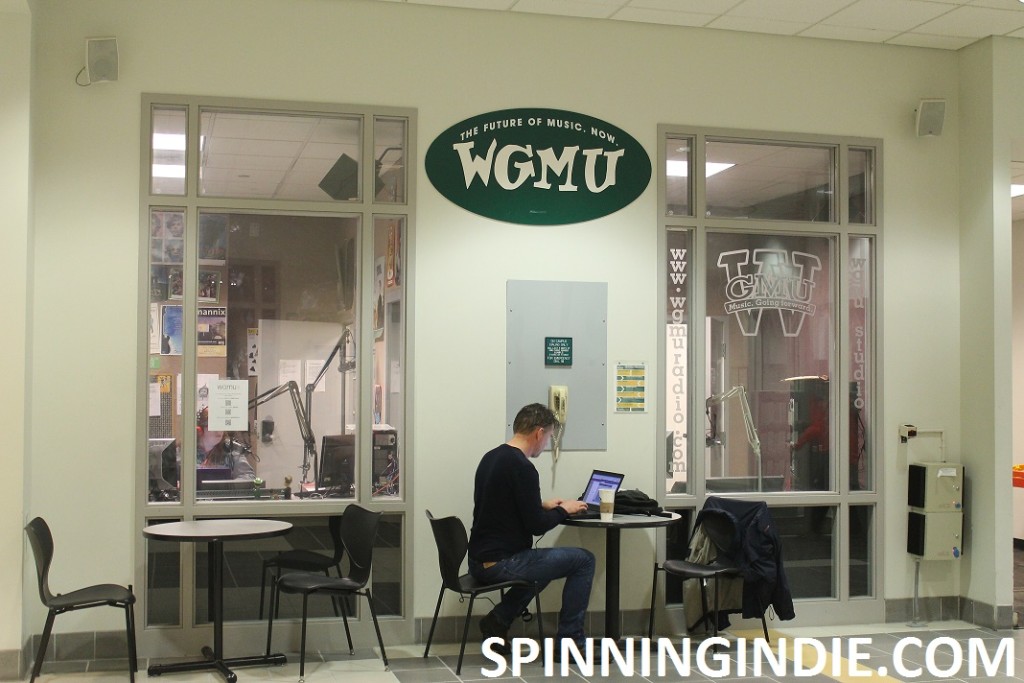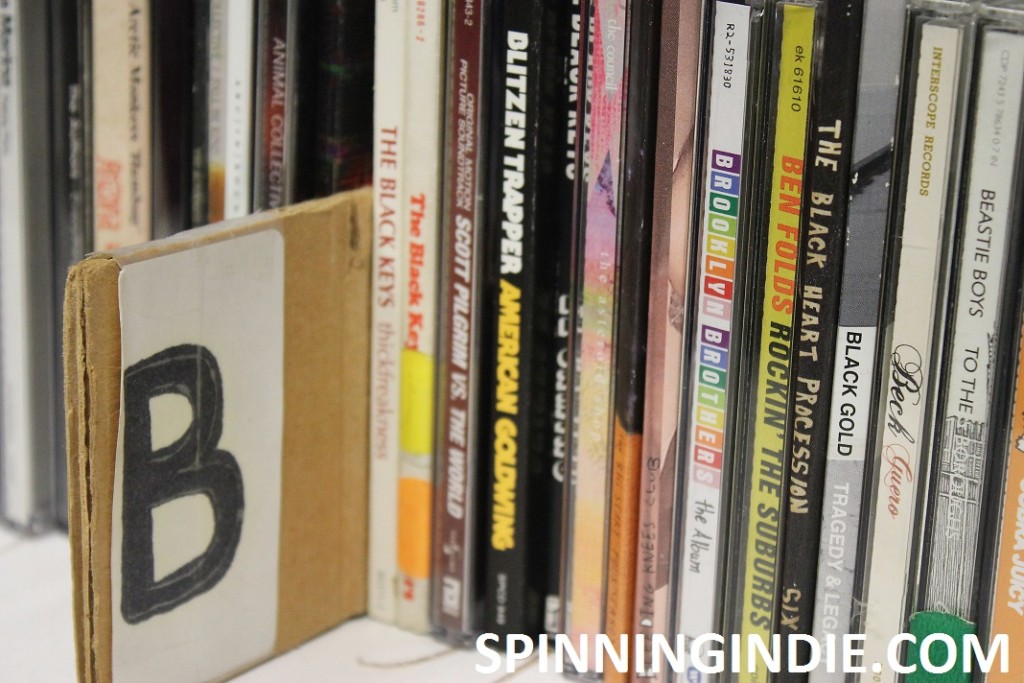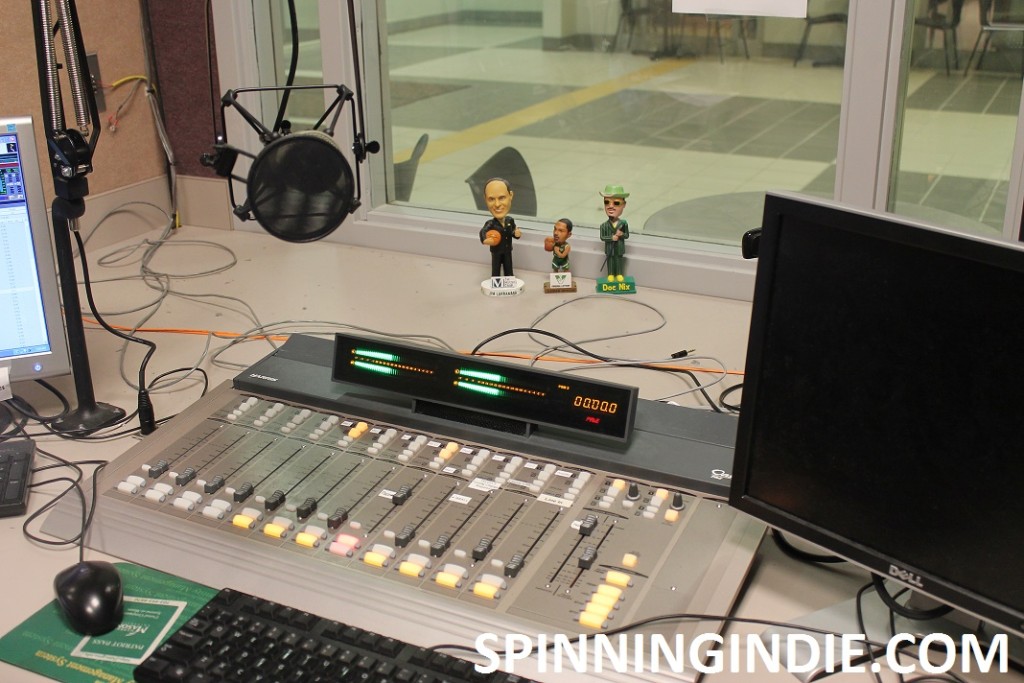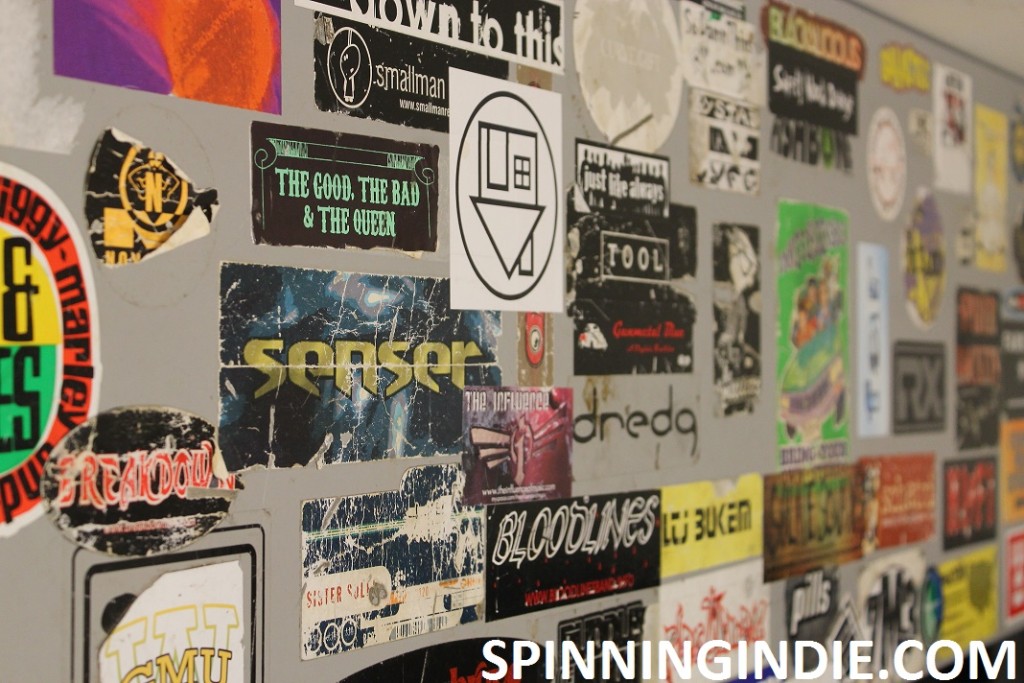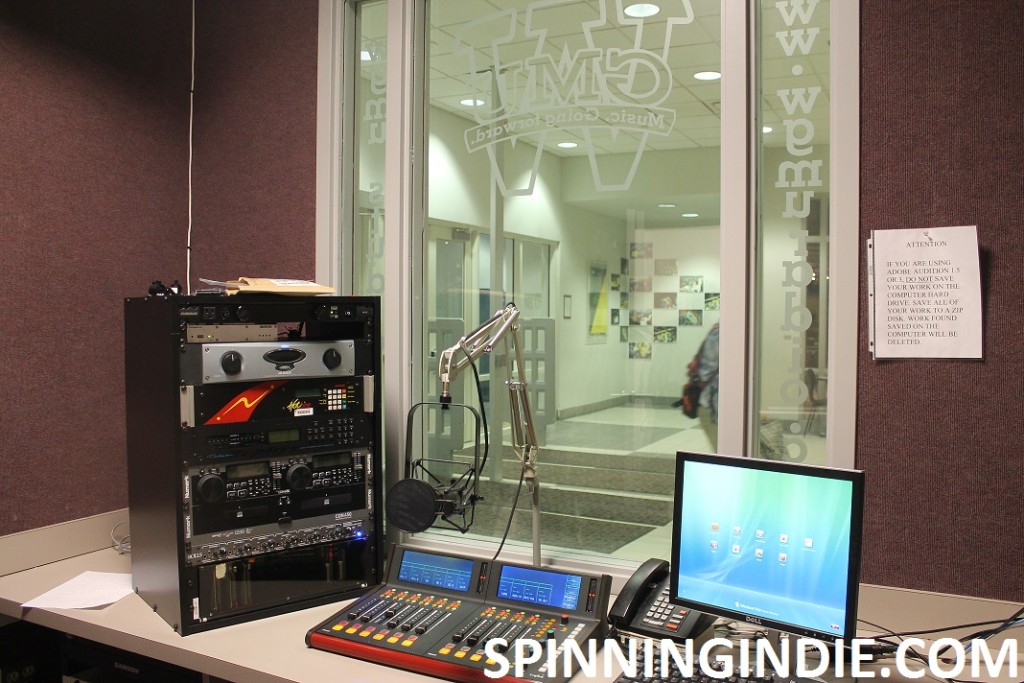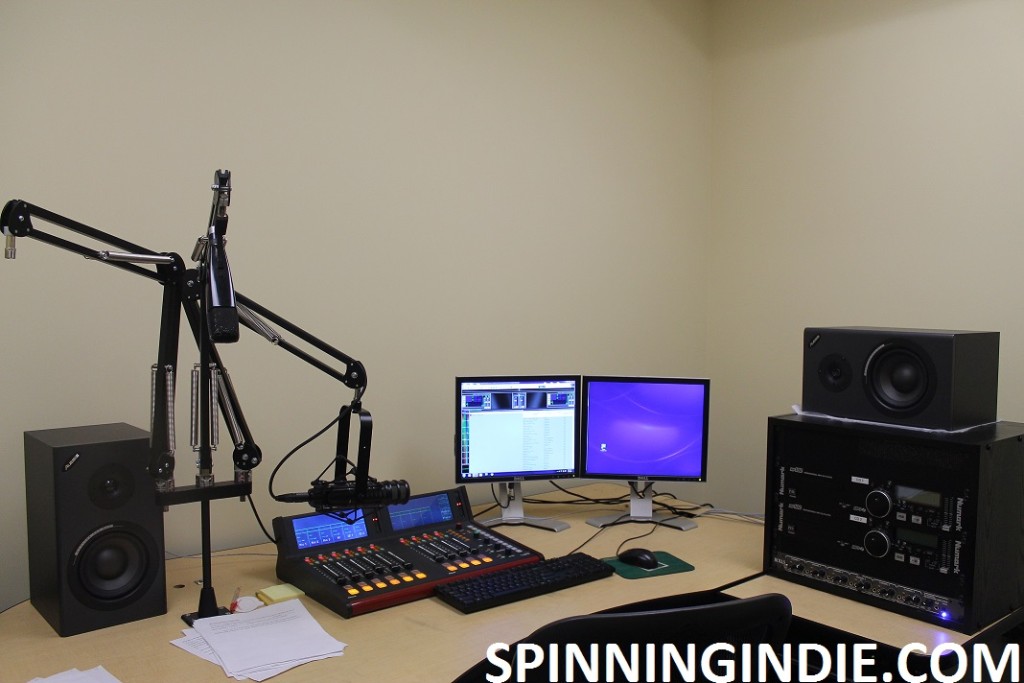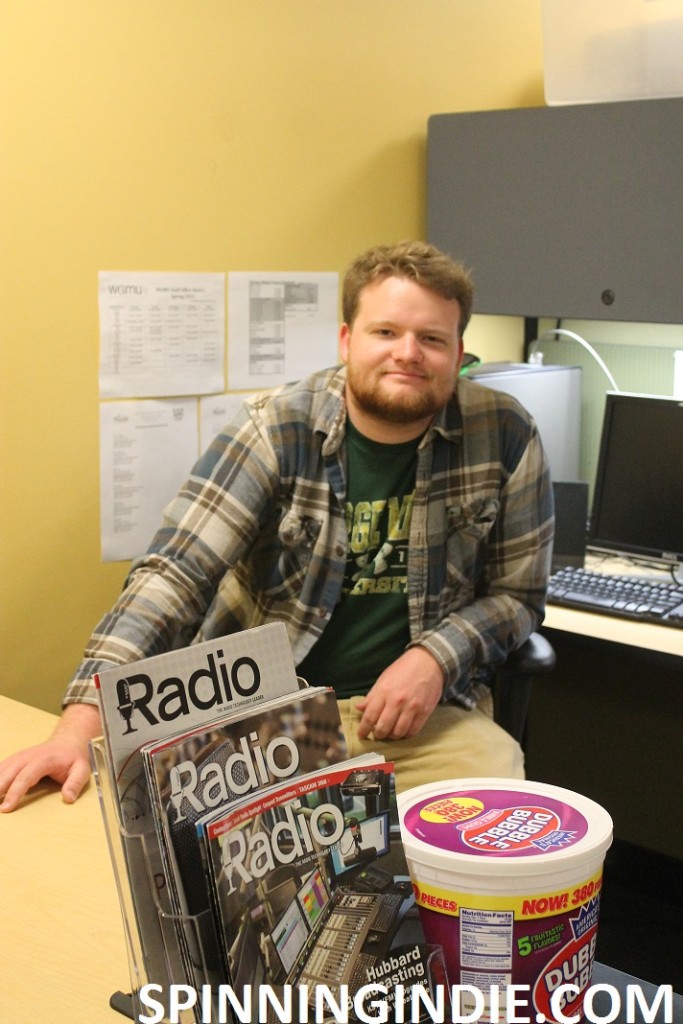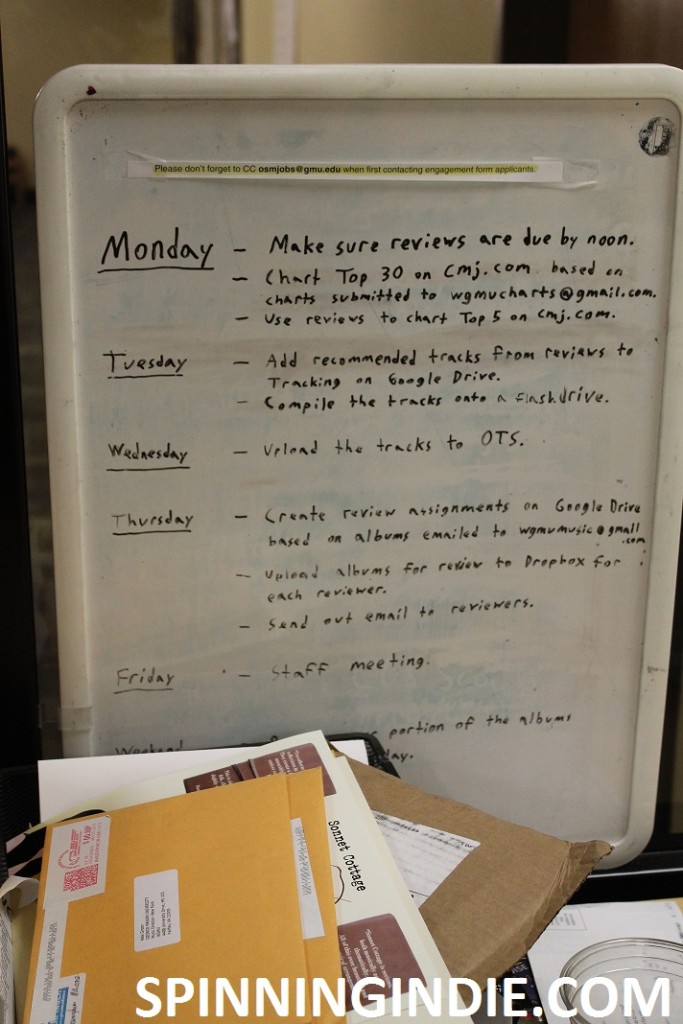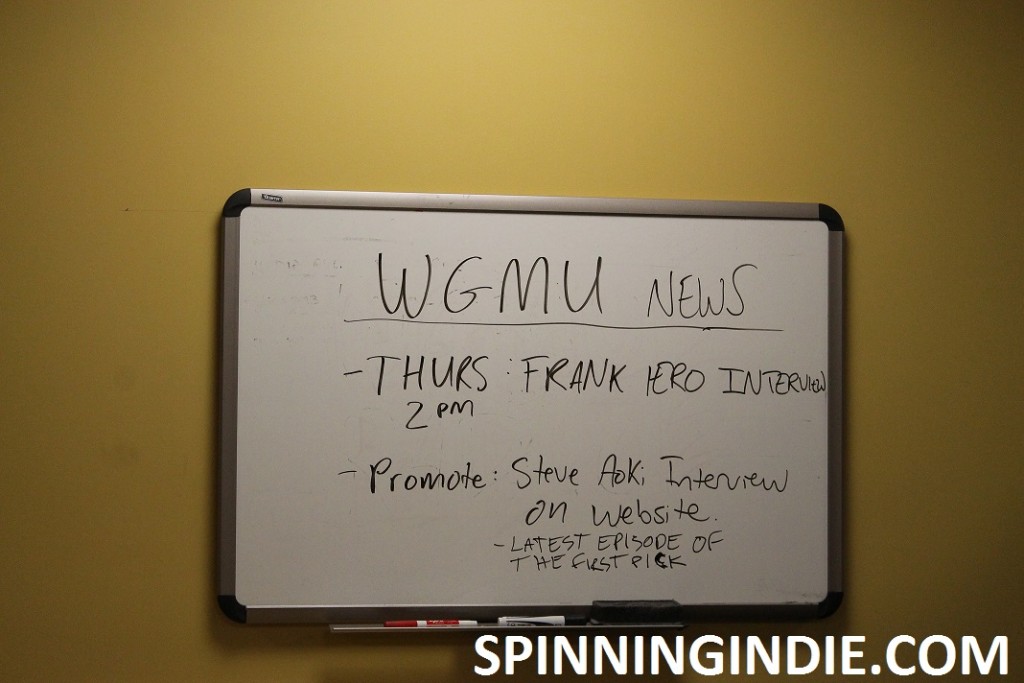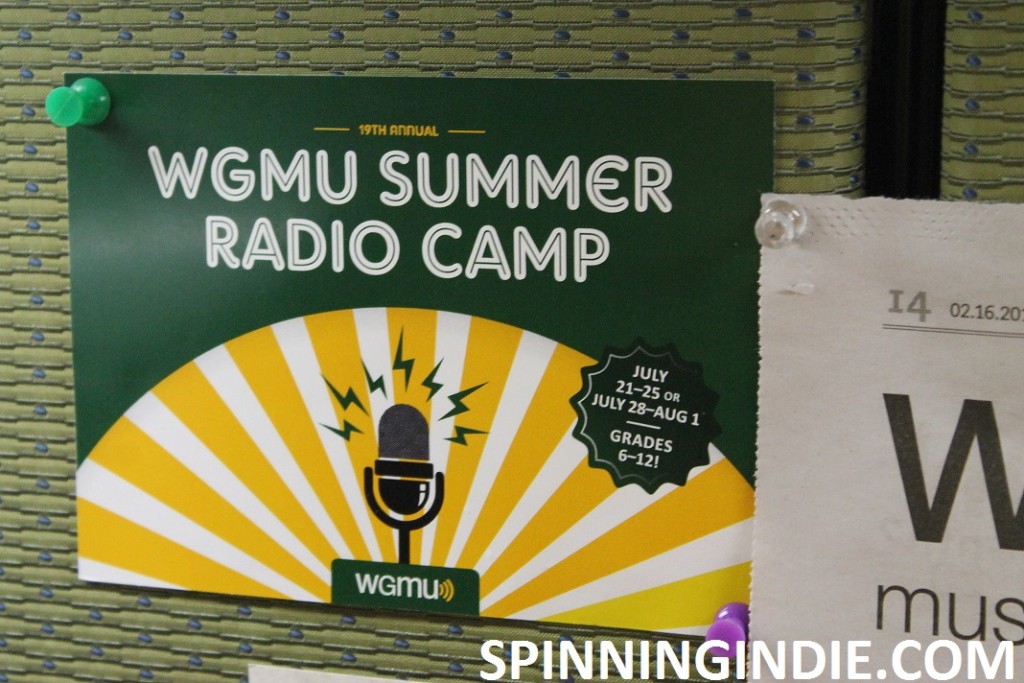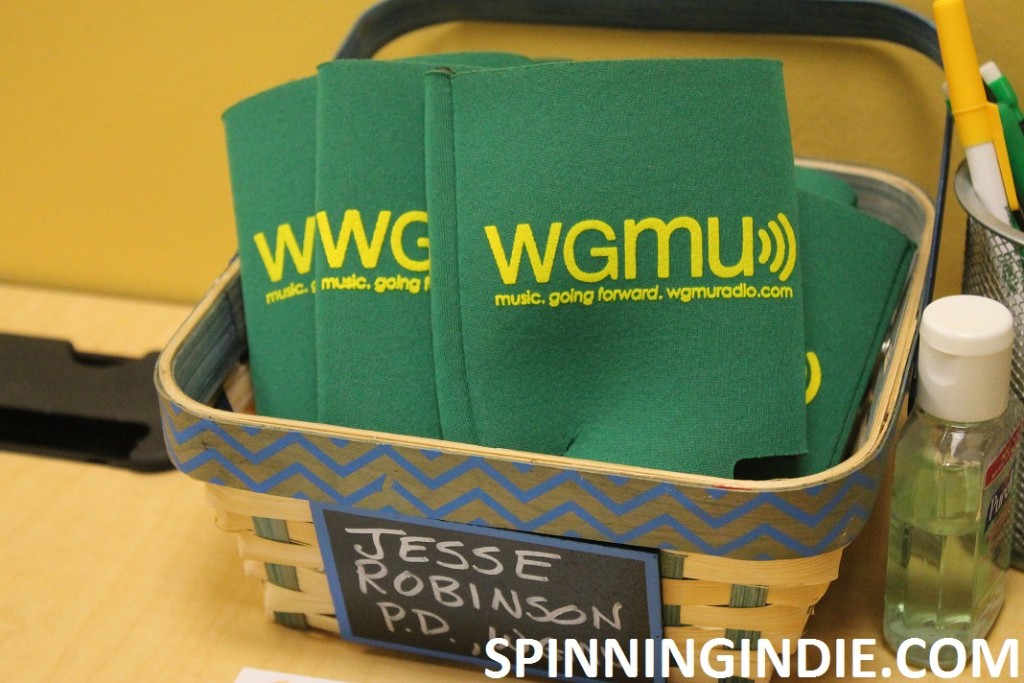While my family slept, I snuck out of our Washington, D.C. hotel room early in the morning on (Good) Friday, April 3rd, 2015 in order to feed my desire to see more college radio stations. After carefully mapping out the journey on public transit, I headed for the Metro station and grabbed the Orange line heading out of the city towards Fairfax, Virginia. Upon arrival, I took a 20+ minute bus ride to George Mason University, home of college radio station WGMU Radio.
It was drizzling when I got to campus, so I huddled under a bus shelter while waiting for WGMU’s faculty advisor Rodger Smith. We’d met previously at a CBI convention, so it was nice to connect again in person in order to see his home station. As we walked to the radio station’s studio in the Johnson Center (one of several student centers on campus), Smith filled me in a bit about both the campus and the station. Now a streaming radio station, WGMU has been around since 1981 and just honored its 35th anniversary with a celebration in May. In its early days, the station broadcast over AM to the campus community.
When we got to the Johnson Center, I grabbed a much-needed coffee before heading over to the studio. The building also contains a bookstore, food court, lounges, computer labs and various offices. The WGMU studio faces the hallway and passersby can see into the DJ both and adjacent studio. Even though it was still pretty early in the morning (and was Good Friday to boot), DJ Anna was on the air doing her first show at WGMU. Smith and I poked our heads in and chatted with her briefly before ducking into an adjacent studio. I couldn’t imagine how nerve-wracking it must have been for the DJ to have visitors hovering over her while she did her very first show! Smith told me that before getting on the air, all DJs do a mock 14 song show, complete with mic breaks.
Hosts of music shows play digital music and Smith told me that the CDs that I noticed in the on-air studio were just “for show.” Smith said that in the past there were ways that one could play vinyl at WGMU, but that this year it hasn’t been possible. Music Directors add digital music to the station’s library and many of the DJs have “rotation shows,” in which they are required to play a certain percentage of newly added music. DJs do bring in their own music on USB drives and laptops, but the material has to be pre-approved by station management. At the time of my visit there were also a number of different specialty shows, including one called “Bro Patrol” (two guys talk and are interrupted by music) and another devoted to classical music.
In addition to the live view that Johnson Center visitors have of the studio, web visitors can also tune in at any time to see the station’s live webstream. As I write this, the camera is pointed out towards the hallway, with a view of a collection of Bobble Heads visible on the station’s window sill. Speakers outside the station also play WGMU’s livestream, so people walking by or sitting at nearby tables can listen to the station.
The station is student-run (with only one community volunteer at the time of my visit) and Smith explained that “students have a voice with this station” and that it’s his role to “direct and then get out of the way.” There are around 40 people who participate in the station on the air, although that number grows after students complete a radio training class.
After taking a look at the on-air studio and the adjacent production studio in the Johnson Center, Smith and I walked over to another building in order to see the radio station offices. It’s a large campus (covering 677 acres with more than 33,000 students), so I was glad to have a tour guide as we trekked from one place to another.
Smith then showed me around the Office of Student Media, which is home to not only the radio station offices and a practice studio, but also the headquarters for Mason Cable Network (a student-run television station) and student publications. Smith and the student radio station managers have their offices in this building, which means that the Music Director, for example, works out of a building far removed from the radio studio.
Smith and I continued our conversation in his office and were soon joined by WGMU Program Director Jesse Robinson. For the Friday before Easter, the station was busier than I would have expected. Robinson was gearing up his interview that day for the General Manager position at the station, a role that he hoped to fill in the forthcoming academic year beginning in Fall, 2015. Despite his impending interview, Robinson seemed quite at ease and shared some anecdotes about his time at the station.
Also a member of the school’s improv comedy team, Robinson hosts an innovative, interactive comedy show on WGMU called “Improv for Mason.” He told me that every week they collect suggestions from listeners via Twitter and then do live scenes on the radio show inspired by those suggestions. Some of the episodes have been archived for interested listeners.
In addition to a variety of talk and music shows, WGMU also airs a great deal of sports programming. Smith told me that it’s the “flagship” station for George Mason University basketball, with WGMU broadcasting all of the men’s games and the majority of the women’s games.
An amazing thing that WGMU does is host summer radio camps for teens. I first heard about the camps back in 2009 (they’ve been going on since 1996) and learned a lot more about them last year when I attended a panel discussion about radio camps at the CBI convention in Seattle. Every July, teens in 6th through 12th grade are invited to the WGMU studios for week-long camps in which they learn about DJing and production and also take a field trip to a local radio station.
As we wrapped up my visit, Robinson talked about the wide variety of shows on WGMU, with music ranging from rap to country, telling me, “it’s a whole plethora of diversity.” In the works are plans for increasing not only the diversity of music played on WGMU, but also diversifying the talk show choices. Robinson said that WGMU had just added a show called “Weathering the Storm,” which will more closely examine the weather. Additionally, a technology talk show was being planned at the time of my visit.
Thanks to Rodger Smith and everyone else at WGMU for the great visit. This is my 87th station tour report. I have one more D.C. station trip to write up and then I’m caught up on visits (for the moment!). See my most recent field trips on Radio Survivor and see all of my station field trips on Spinning Indie.

